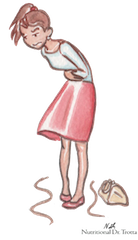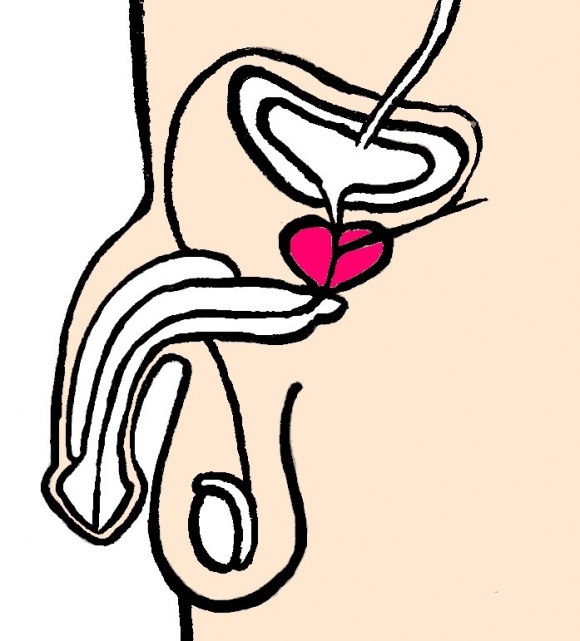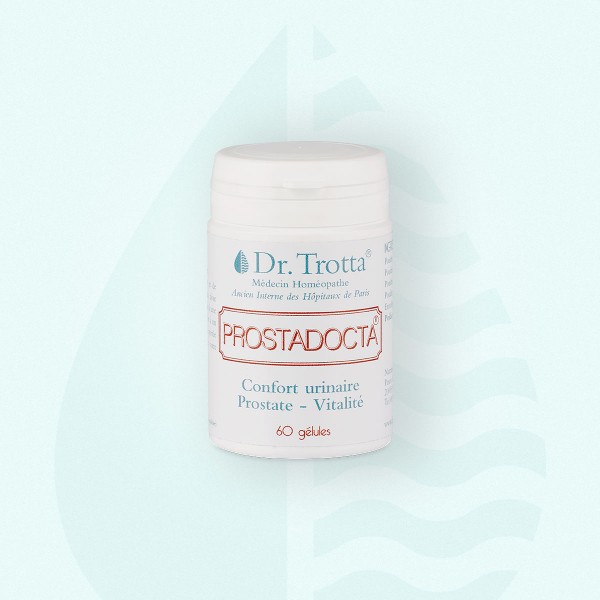How many patients over the age of 50 come to see me for benign but extremely annoying problems: getting up one to three times a night to urinate, drip-drip-drip, reduced sexual vitality, recurrent urinary blockages?
Most of these disorders are due to the enlargement of the prostate gland, medically termed “prostate adenoma”.
Schematically, the volume of the prostate follows the curve of our age: at 20, the prostate measures 20 ml, at 60 60 ml.
I’m in a good position to say so, since for 20 years as a radiologist, I performed numerous prostate ultrasounds and was able to observe this.
When the prostate enlarges, it obstructs the evacuation of urine from the bladder via the urethra: this explains the decrease in the strength of the urinary stream as we age. When this “squeezing” becomes too obstructive, the bladder can sometimes become blocked. This is known as “acute urine retention”, and is an emergency requiring bladder catheterization.
When this tightening is progressive, it leads to chronic retention: the bladder doesn’t empty completely. This is known as post-micturition residue, which can encourage the emergence of bladder stones, urinary tract infection and bladder irritation, leading to the creation of polyps that can provide a breeding ground for bladder cancer.
In other words, prostateproblems should not be neglected.
But you shouldn’t go overboard and have surgery as soon as you have these problems either, because there are natural methods for treating the prostate more naturally and avoiding the need for surgery.
Good surgical indications are: acute urine retention, excessive post-micturition residue, prostate cancer.
Yet prostate cancer is 10 times less common than prostate adenoma.
Most men with urinary discomfort have a prostate adenoma. This adenoma can be treated with plants.
Here’s how:
The first is fireweed.
It’s a pink flower from the Alps.
An Austrian herbalist found that in a valley where men regularly consumed this plant in herbal tea instead of tea, they had far fewer urinary problems and prostate operations.
Studies conducted on this plant have confirmed its therapeutic value for prostate-related functional disorders. Fireweed is indeed effective in the fight against prostate adenoma. It limits the number of micturitions (we urinate less during the day and especially at night), and strengthens the urinary stream and flow rate. This is achieved by the same mechanism as current drugs (inhibition of 5-alpha reductase, the enzyme responsible for hypertrophy), and without their side effects.
The second is pumpkin seeds.
Tradition attributes interesting properties to pumpkin seeds in prostate disorders, and the various experiments carried out confirm these decongestant properties of pumpkin seeds, which are invaluable in cases of prostate adenoma, as they reduce the harmful effects on the bladder.
What’s more, the phytosterols contained in its seeds inhibit inflammation or growth of prostate tissue (benign prostatic hypertrophy), the cause of urination problems.
Sabal fruit:
Sabal is a small palm growing naturally on the coastal dunes bordering the Atlantic Ocean in the Caribbean arc, from Florida to Colombia. The part of the plant used for healing is the ripe fruit. This is a dark-red berry about the size of an olive, which tends to turn black as it dries.
The Caribbean Indians regularly consumed the fruits of this palm for their tonic, aphrodisiac, antiseptic (cystitis, gonorrhea) and decongestant (prostate adenoma) properties.
Its fruits contain a fatty oil and, among other constituents, phytosterols, a lipid (fat) containing fatty acids, fatty alcohols, flavonoids and polysaccharides.
Scientific research has confirmed that fruit extracts are highly effective in the treatment of prostate hyperplasia. This is due to finasteride, which blocks the 5-alpha-reductase enzyme responsible for dihydrotestosterone formation.
This natural molecule in Sabal fruit reduces the action of testosterone on the prostate, thus limiting its growth and limiting the effects of prostate congestion on the urethra and bladder. On the other hand, unlike chemical drugs which act on this enzyme, Sabal fruit, while reducing the effects of testosterone on the prostate, has no negative effect on libido or erections – quite the contrary.
It is therefore a plant particularly recommended for disorders linked to the prostate or senescence: difficulty in urinating, urges to urinate too often, especially at night, reduced libido and erectile strength.
However, as with any natural treatment, you need to be patient.
The action of sabal can sometimes take 4 to 6 weeks to manifest itself.
That’s why the doctor recommends a three-month course of PROSTADOCTA to start with, then repeat for 1-3 months depending on improvement.
Red ginseng root
Its Latin name, Panax ginseng, means panacea. Panacea meaning plant with multiple therapeutic virtues (Asian or Korean species).
Probably the most widely used plant in Asia for over 2,000 years for its tonic and aphrodisiac virtues.
Ginseng is a grassy plant of the ivy family containing small carmine-red berries and a large beige root.
The root is used for its therapeutic virtues.
Scientific research has confirmed the following therapeutic properties:
– Increased libido: Asian red ginseng improves elections more effectively than a placebo. A firmer, longer-lasting erection was observed, probably due to improved vasodilation in the penis
De Andrade E, de Mesquita AA, Claro Jde A, de Andrade PM, Ortiz V, Paranhos M, Srougi M. Study of the efficacy of Korean Red Ginseng in the treatment of erectile dysfunction. Asian J Androl. 2007 Mar;9(2):241-4. Epub 2006 Jul 11)
Murphy LL, Lee TJ. Ginseng, sex behavior, and nitric oxide. Ann N Y Acad Sci. 2002 May;962:372-7
Choi HK: Clinical efficacy of Korean red ginseng for erectile dysfunction. Int J Impot Res 1995, 7(3): 181-6.
– Antioxidant properties: ginseng root has a preventive action on cancer cells.
A newly discovered ginsenoside (25-OH-PPD) has shown therapeutic potential on prostate cancer in animal models
-Wang W, Rayburn ER, Hao M, Zhao Y, et al. Experimental therapy of prostate cancer with novel natural product anti-cancer ginsenosides.Prostate. 2008 Mar 6
– Ginseng is a brain protector, improving memory and intellectual performance in humans.
So, to sum up, the ginseng contained in PROSTADOCTA boosts sexual vitality and cerebral performance, and has a preventive action on prostate cancer cells.
Nos produits naturels
Need more information and to meet Dr. Pascal Trotta?
Make an appointmentAlso read

"Don't touch my prostate!""

Recurrent urinary tract infections: the natural solution

